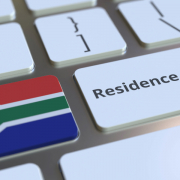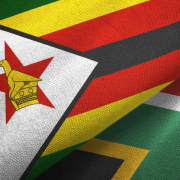Foreign Tax Practitioners With Merit Can Apply For A Critical Skill Visa
/in Archived, News /by xp-adminMarisa Jacobs, Managing Director at Xpatweb Expatriate Solutions, expects that the final list is due for release in the coming weeks. Following meetings with the National Economic Development and Labour Council (“NEDLAC”), Jacobs explained how the draft list was compiled.
“The list of occupations that goes onto the critical skills list, must first get input from the various stakeholders to ensure each occupation meets the criteria. The technical report published by the Department of Higher Education and Training (DHET), outlines the criteria as follows –
For an occupation to be included in the CSL, it must (1) currently be in acute shortage or likely to be in the future, due to its importance for South African strategic priorities; (2) require a high-level skill or advanced qualification; and (3) require a long lead-time to develop a domestic supply pipeline. After it is established that there is an acute shortage of that skill in South Africa, the CSL will enable employers to recruit internationally for these skills sets. For tax professionals, for instance, the occupation ticks all the boxes and should remain on the final list. Where foreign nationals qualify for a Critical Skills Visa, the Critical Skills Visa allows the DHA to fast track their applications based on the acute shortage.”
The qualification process for tax professionals
On page 106 of the draft skills list, the South African Institute of Taxation (“SAIT”) is listed as the professional body to which the applicants must be registered in order to qualify for their Critical Skills Visa.
“Tax professionals or representatives looking to come to South Africa, should find it easier to get in via a skills visa,” says Keith Engel, CEO of SAIT, which is the largest body of tax practitioners in South Africa. “The professional body membership process entails a vetting process to assess each applicant. This further includes criminal and compliance checks, verification of their university degree with the South African Qualifications Authority (SAQA). The SAQA process asks whether their degree is comparable with those obtained in South Africa? SAIT seeks to ensure that the degree contains tax. SAIT then looks for at least five years of relevant tax experience.”
The tax profession in South Africa
Tax is inherently complex and is made further so by constant legislative changes. Given how the South African Revenue Service (“SARS”) has improved its enforcement over the last two years, tax professionals are a welcome addition to the CSL.
Jean du Toit, Head of Tax Technical at Tax Consulting South Africa, believes that the inclusion of tax practitioners on the list will greatly contribute to the industry.
Says du Toit, “The inclusion in the list arguably underscores the increasing need for skilled tax practitioners to assist taxpayers with their tax compliance in general. With the surge in global mobility, the reality is that more taxpayers will have an international dimension to their tax affairs. Cross-border taxation brings with it an extra layer of complexity, increasing the demand for tax practitioners of a certain calibre.” Besides international business tax, areas of highest mobility appear to be transfer pricing, cross-border mobility, value-added tax and cross-border specialisation in high net worth individuals.
Foreign tax practitioners will bring sought-after skills in specialised areas of international taxation, together with a fresh perspective of the tax profession. SARS too may benefit from this initiative. SARS launched a massive recruitment drive this year and stakeholders have questioned if SARS can adequately restock its resources if it limits its search to local professionals. SARS should align with the initiative and recruit from the global talent pool, to enhance the transfer of skills within the institution.”
Keith Engel also notes that key foreign experts have been of great assistance to SARS in the past. It is fair to surmise that the overwhelming influence from the inclusion of a single occupation on the CSL, not only confirms the importance of offering critical skills visas in conjunction with a critical skills list, but it emphasises the need to regularly update or amend the list as the demand for skills fluctuate.
An immigration specialist with a sound knowledge of the intricacies around critical skills visas will be able to get your application process underway and should be able to assist with the qualification criteria for the respective occupations.





